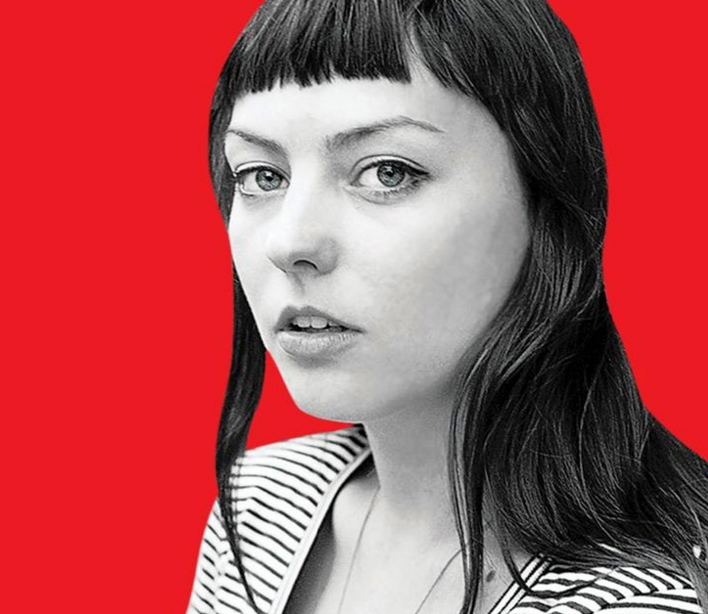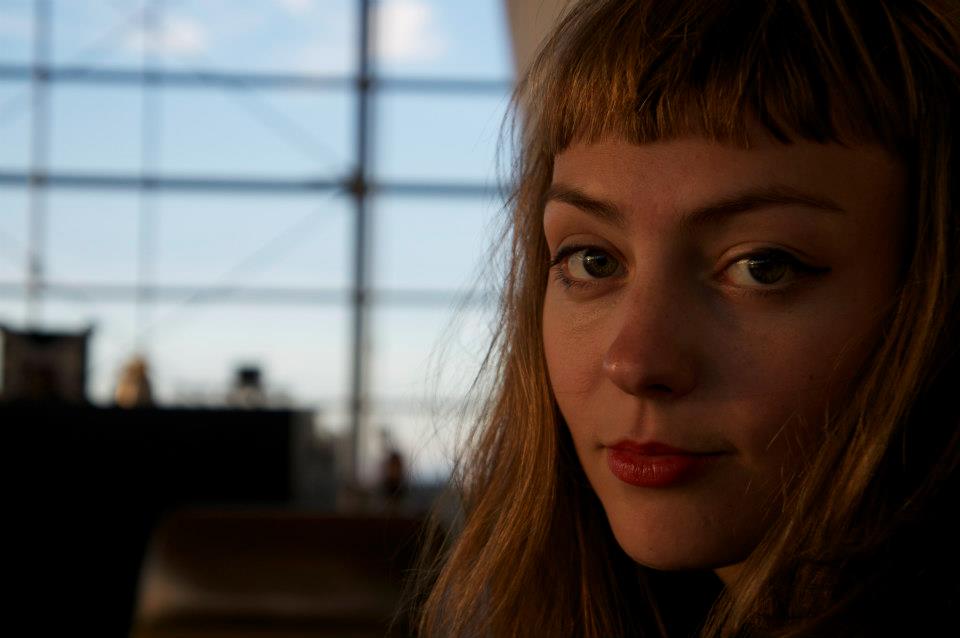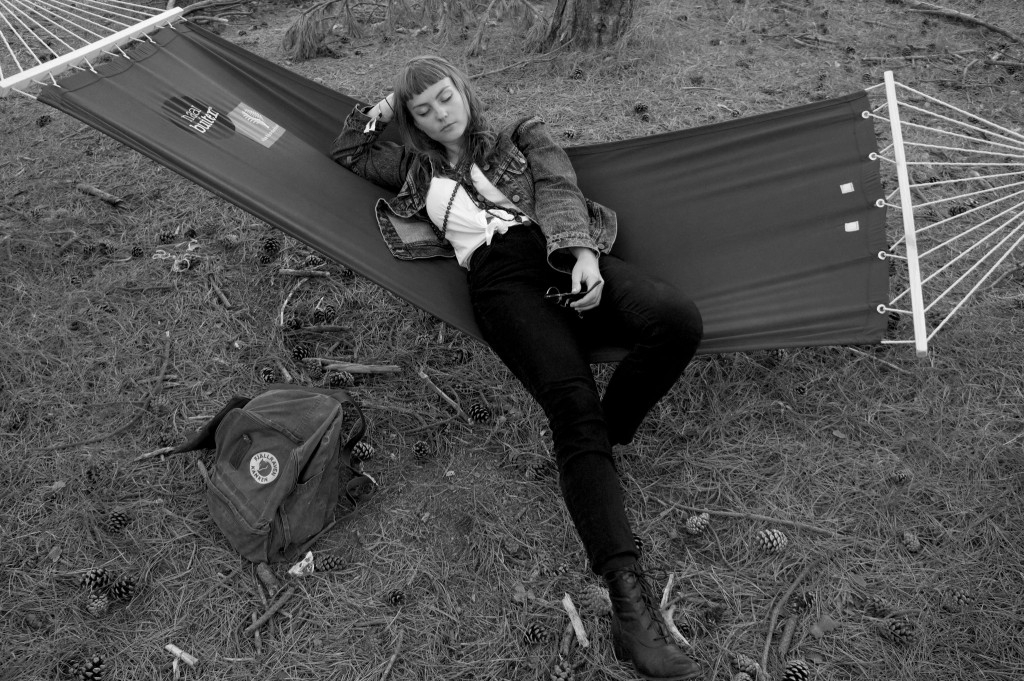Culture
A Chitchat with Angel Olsen
By: Emily Votaw
Posted on:

After releasing the mesmerizing and critically acclaimed Burn Your Fire for No Witness in February of 2014, vocalist Angel Olsen continues to grow in popularity. Even after Burn Your Fire was named the best album of 2014 by the A.V. Club, Olsen still says she’s (in her own words) “no Beyoncé.” Olsen has performed widely with Wilco, Bonnie “Prince” Billy and has toured all over the globe.
Olsen spoke with WOUB’s Emily Votaw about touring with a full band, hanging out musical peers like Mac DeMarco and being (playfully) compared to Hank Williams. Olsen will perform at the Nelsonville Music Festival on June 3.
WOUB: I guess I’ll dive right in: are you on the road right now? Or are you taking a little break before you take off for your summer tour?
Angel Olsen: So I’ve been taking a kind of long break, working on some new material and stuff — playing some festivals to stay in the game, rehearsing older material and getting better at playing the new material and stuff like that. These upcoming gigs are going to be like a little stint for us and then I’ll do a few weeks off and then another stint. And then hopefully some stuff next year.
WOUB: If I understand correctly, Burn Your Fire For No Witness was your first full length recording with a full band? Is that correct?
AO: Yeah, like a full band of my own. Half Way Home had a band of two people. (laughs)
WOUB: I wanted to ask you about the experience of recording with a full band like that versus recording with a smaller group? Could you speak on that a little bit?
AO: Well, I’ve been playing with a band for a while now, a few years. I like playing with a band because I can kind of let go and I know that they can keep going and I can kind of relax into the songs. I don’t have to talk as much or be the “comedian singer songwriter,” you know? When you’re playing solo, everyone is waiting on your every move. It’s exciting because I can sing more and I can focus on the singing of things without it feeling too controlled, but it’s just so much more fun to share that experience with people on a stage than to do it on your own. So I really — wait, there’s a truck pulling up next to me. I’m gonna go for a little walk here. Sorry.
WOUB: You’re fine! That’s okay.
AO: It’s really loud. I’m at a friend’s house, and I was hoping to have a private conversation, so, I walked outside. But yeah — I like both the experience of playing by myself and with a band, I think that taking some time off from the band and doing a solo tour is important, just to test myself, to remember what it’s like to perform solo. I think it’s difficult after a while because it’s like ‘I really like my band,’ and ‘I really like sharing those moments with those people,’ but playing solo can teach you a lot about who you are as a musician; going back to that is always kind of interesting.

WOUB: Absolutely! I’m calling specifically about the Nelsonville Music Festival, will you be playing solo there or with your band?
AO: This will be with the band, the band that has been touring with me, that was on the album. It’ll be good — you know, there are some changes in the future, so these next couple of stints will really be momentous for us so far as like, the last time the band is the way that it is. I’m excited about getting back on the road. It’s weird because I’ve played those songs so many times, but I’ve taken enough of a break that I’m really excited to play the festival. And I’ve heard really good things about it. I’ve had friends play it before, and they loved it.
WOUB: That’s great. Have you been to the Southeast Ohio region before?
AO: I have. Yeah, there was one tour where I played these three shows in Ohio: one at a museum, one at a kind of grungy little bar and then another one that was at a nicer venue. But yeah, I’ve never played any festivals in Ohio, so, yeah, we’ll see.
WOUB: I saw on your online schedule that it looked like you’ll be there all four days — do you know if you will be performing multiple times? Or just the one time as far as you know?
AO: I think we’re just playing once. I don’t know, I haven’t looked at my schedule in a while. I’d rather just kind of be surprised, rather than get nervous or overthink my schedule because the way that my life is – and the way that it is for many musicians – is that your whole year is planned out. In January you know what you’re going to be doing in September. It’s super weird. I don’t like to look ahead too often, I know that’s strange, but I know that I’ll be in the Ohio region for a short period and then I’m going to Europe for some projects and then come back and we’re playing Alaska, and I’ve never played Alaska, and we’re going to Iceland, so that will be extreme.
I’d rather just kind of be surprised, rather than get nervous or overthink my schedule because that’s the way that my life is – and it’s the way that it is for many musicians – is that your whole year is planned out. In January you know what you’re going to be doing in September. It’s super weird. I don’t like to look ahead too often, I know that’s strange.
WOUB: This is sort of an abstract question: if you’re uncomfortable answering it, that’s totally fine. It’s just so remarkable how much you’ve done during the couple of decades that you’ve been on the planet. Could you talk a little bit about what you feel led to this sort of build up where you’re being recognized on a national level at a young age?
AO: Yeah. I guess it’s not as extreme for me as a lot of my musical peers. I feel like in the the beginning of it, everything is really exciting and you want to keep up on every update. You want to know how people are reading into your music, how people are reading into what you say about yourself in interviews, how you’re looking, where you’re playing; all those things, like you want to know about it and you get excited by it. But at this point, I don’t really use the Internet to monitor my career. Like I like the Twitter thing, and the small parts of the Internet that I can use so far as my career, but I’m not going to check up on how our performance was on a YouTube video or something. Unless somebody is like “it was remarkable,” and a friend makes me watch it. Because I think that it’s better to look forward into the future and not get too wrapped up in your accomplishments — it’s good to realize what you’ve done, and I have certainly learned a lot from the music industry and from myself and what my limits are and how I want to push myself.
I really learned that I like having a private life and I like doing things that have nothing to do with music and it’s super refreshing to me to go home and not talk about music for a while and just wait for those things to happen, and let them happen naturally. But I watch people around me and everybody has a different approach. Everyone has a different way that they ended up in the situation that they’re in. Being at these festivals is really fun because you can meet up with your friends who are doing the same things that you’re doing and maybe they have a different perspective on things like how much you should tour; if you should put up a billboard or if you should sell out and have one of your songs on a car commercial.
It’s cool to talk to other bands about their ideas on that. I just did a festival in Australia and there were a ton of bands, Courtney Barnett, Mac DeMarco, Tame Impala and I was just talking to everyone, we were goofing off and having fun and listening to music, but also talking about how we got to where we are now. And I don’t know, I think it’s helpful that I can have that community and that other musicians can have that community. But I don’t wake up and think ‘man, I’m, like, internationally known,’ — I don’t really think of it that way. There are different tiers to that sort of fame, like I’m not Beyonce or something. (laughs)

WOUB: Well, kind of on the same note, I was curious because according to a couple of sources, you started working with Will Oldham (Bonnie “Prince” Billy) when you were 23 years old; could you talk a little bit about how that came to be and how you got involved with him?
AO: Well I had been playing shows in Chicago and New York and I think that a friend of a friend was like ‘Hey, he’s (Oldham) is looking for someone to do a cover band thing,” and they recommended me, and (Oldham) contacted me and we started working together on the cover band and then we kept working together for a little while. I learned a lot about harmonizing and about being the the “second singer.” At the time I had released my first EP, Strange Cacti, and it was doing well, but I never really had the chance to tour it. So after a few years, once Half Way Home was about to come out, it was like, ‘Okay, it’s time for me to do my own thing, even if it fails,” but was a good experience and I learned a lot from that experience, so I’m happy that it came together.
WOUB: Absolutely. Another sort of abstract question I was hoping to ask you has to do with the comparisons that critics oftentimes make in reviews of your work, to songwriters like Leonard Cohen or Hank Williams; how do you feel about those as someone who, I assume, has been a lifelong music fan?
AO: Yeah, I mean, it’s a huge compliment, it’s one of those things where artists are always like ‘I’m unique, I’m special, how dare you say that I sound like this musician,’ but that’s how people relate things, so it makes sense when people draw those comparisons. I think with the Hank Williams thing it’s less about being directly inspired by Hank Williams on that song (“Hi-Five”) than it is about making fun of people thinking of me as a country musician; but going with it by also making it my own song. I don’t know, I guess it’s kind of a weird parallel because on one hand you’re so psyched to be compared to someone so great, but, on the other hand, you’re like, ‘Well, what does that mean for me? Does that mean that I’m still imitating too much? Should I work harder on becoming myself?’
I was having this conversation with some friends in the car the other day about these tapes I have of myself as a 17-year-old, and it’s clear, listening to the tapes, how affected my voice was and how I was obviously listening to Fairport Convention and English folks singers. I was telling my friends that I have these tapes where I overdubbed my voice and I have this really weird, abstract voice that is really odd in comparison to what I sound like now, it’s like super embarrassing. And my friend said: “You HAVE to find those tapes, it’s so important to realize where you came from.” It takes imitation to come into your own. You imitate and then you start to let go and become your own artist. I just thought that what she said was really powerful. It’s good to be humbled by the beginning and to be reminded that everybody started somewhere and everybody used what was around them and kind of kept going forward.
WOUB: As a sort of final question, what is up next for you?
AO: A new record is in the works, I don’t have any dates yet, but we’ve been getting ready for that. I’ve been preparing for that and getting ready to enter the next phase.
For more information on Angel Olsen, check out her Facebook, official website and Twitter. Stay updated on the Nelsonville Music Festival here.

